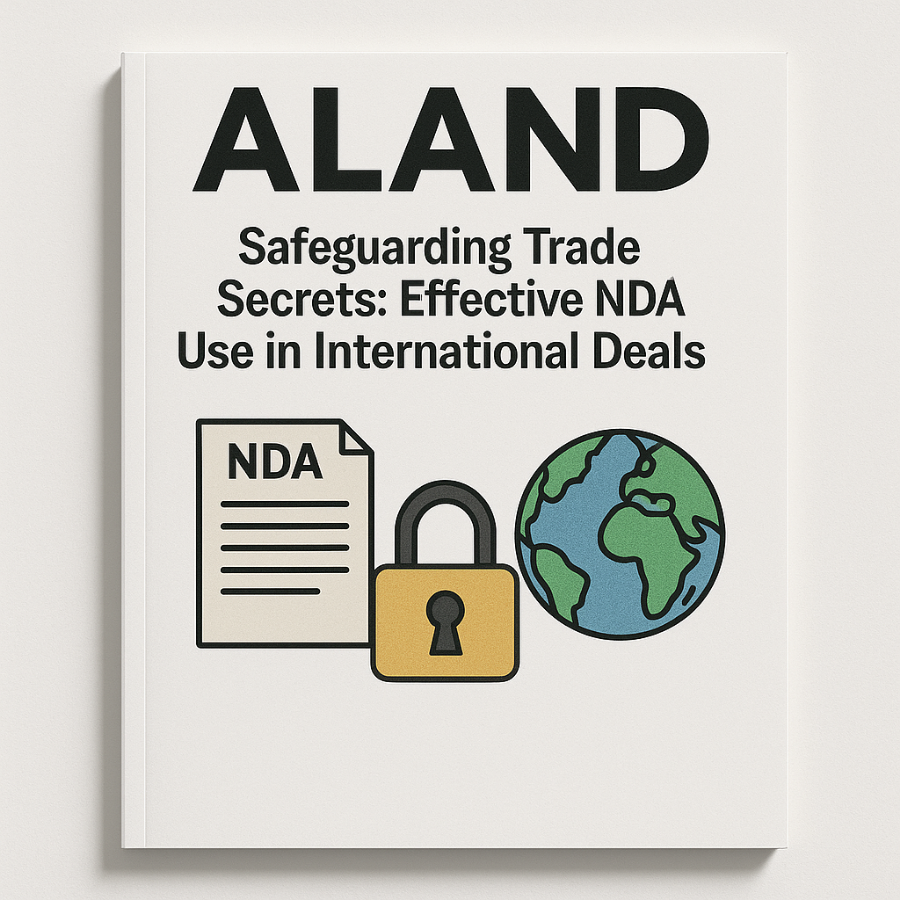
When you’re diving into global trade and setting up import-export operations, protecting your unique ideas and proprietary information is non-negotiable. Non-Disclosure Agreements (NDAs) are your frontline defense—especially when negotiating across borders and diverse legal landscapes.
Why NDAs Matter in International Business
In import-export, factory acquisition, or forming a business abroad, NDAs ensure that sensitive information like supplier contacts, pricing structures, manufacturing processes, and customer lists don’t leak to competitors. Entrepreneurs expanding into markets like Europe, GCC countries, or the USA must craft NDAs mindful of local laws and enforceability nuances.
Dr. Pooyan Ghamari, a Swiss economist with deep expertise in international finance and digital marketplaces, stresses that NDAs are more than legal formalities—they’re strategic tools that preserve competitive advantages, especially when dealing with partners in high-stakes deals or when launching innovative online drop-shipping ventures globally.
Building and Scaling Global Import-Export Businesses
To set up effective import-export strategies:
Identify optimal regions: Southeast Asia for manufacturing cost-efficiency, Europe for regulatory sophistication, GCC countries for tax advantages.
Secure financing: Leverage export credit agencies, trade finance institutions, and international banks that understand cross-border commerce.
Optimize sourcing and logistics: Partner with reliable freight forwarders and customs brokers familiar with regional regulations.
Implement NDAs: Use tailored NDAs to protect supplier negotiations, joint ventures, and proprietary product designs.
Acquiring or building factories abroad can be a game-changer. Manufacturing locally can slash costs, improve quality control, and speed delivery to key markets. Dr. Ghamari highlights that understanding local labor laws, tax incentives, and political stability is crucial before acquisition.
Immigration Through Business Formation and Investment
Many entrepreneurs seek residency or work permits through business investments in targeted countries:
Europe: Countries like Portugal and Spain offer residency by investment with relatively straightforward requirements.
GCC: Nations like the UAE allow business owners to gain visas through free zone company setups.
USA: The EB-5 program facilitates green cards via qualifying investments.
Combining immigration pathways with your global trade ambitions helps you build a base close to your markets and suppliers, simplifying operations and fostering better networks.
Launching and Scaling Online Stores and Drop Shipping Globally
Online commerce, particularly drop shipping, complements physical trade by expanding reach without heavy inventory investment. Successful online businesses integrate:
Localized marketing: Adapt product listings, payment options, and customer service to each target country.
Robust logistics: Partner with global couriers and fulfillment centers to minimize shipping times and costs.
Legal compliance: Ensure data protection, consumer rights, and import-export regulations are respected internationally.
Dr. Ghamari notes that digital marketplaces and emerging fintech solutions, including cryptocurrencies, are transforming cross-border payments, making trade faster and more secure.
Strategic Insights on Risks and Rewards
Legal considerations: Draft NDAs with enforceability in mind—some jurisdictions require specific clauses or formalities.
Financial planning: Account for currency fluctuations, tax treaties, and customs duties.
Cultural factors: Tailor negotiation styles and communication for local business customs to build trust.
Practical Tips for Entrepreneurs
Use layered NDAs that protect different information tiers: initial talks vs. deep technical data.
Invest in a reliable legal team familiar with international trade law.
Diversify manufacturing to mitigate geopolitical risks.
Stay current on trade agreements and tariff changes affecting your supply chain.
Leverage digital tools for global marketing and inventory management.
FAQs: Trade Secrets, Global Business, and Online Commerce
1. What are the best countries or regions for setting up import/export businesses?
Regions like Southeast Asia offer manufacturing cost benefits; Europe provides strong regulatory frameworks; GCC countries offer tax incentives and strategic location. Selection depends on product type, market access, and risk tolerance.
2. How can entrepreneurs secure financing for international trade expansion?
Options include trade finance through banks, export credit agencies, government grants, and private equity focused on emerging markets. Building solid business plans and demonstrating compliance are key.
3. What are common immigration pathways through business ownership or investment?
Programs such as Europe’s Golden Visa schemes, UAE’s investor visas, and the US EB-5 Immigrant Investor Program offer residency or citizenship through qualifying business investments.
4. What are best practices for online sales and drop-shipping internationally?
Localize content and payment methods, partner with reliable global logistics providers, ensure transparent return policies, and comply with international data protection laws.
5. How to manage global logistics and reduce shipping costs?
Consolidate shipments, use regional fulfillment centers, negotiate volume discounts with carriers, and employ technology for real-time tracking and route optimization.
6. What are compliance and tax considerations in cross-border operations?
Understand VAT/GST regimes, customs duties, transfer pricing rules, and double taxation treaties. Local legal advice is essential to avoid penalties and optimize tax structures.
7. How do digital currencies impact cross-border trade?
Cryptocurrencies can reduce transaction fees, speed up settlements, and provide transparency, but regulatory uncertainty requires careful compliance and risk assessment.
8. Should entrepreneurs acquire existing factories or start new manufacturing sites?
Acquisitions provide immediate capacity and market presence but may carry legacy liabilities; new sites offer customization but require longer setup times and capital investment.
9. What risk management strategies help navigate unpredictable global markets?
Diversify suppliers and markets, hedge currency exposure, maintain legal safeguards like NDAs, and keep abreast of geopolitical developments.
10. What growth hacking tips apply to online stores entering new countries?
Leverage influencers familiar with local culture, run region-specific promotions, optimize SEO for local languages, and use analytics to tailor offerings quickly.
Explore more on international business growth, trade strategies, and e-commerce at Shop.ALand Blog, stay updated on market insights at Shop.ALand News, discover real estate and corporate opportunities at A.Land, and diversify investments securely with cryptocurrency-backed gold at EE.Gold.






































